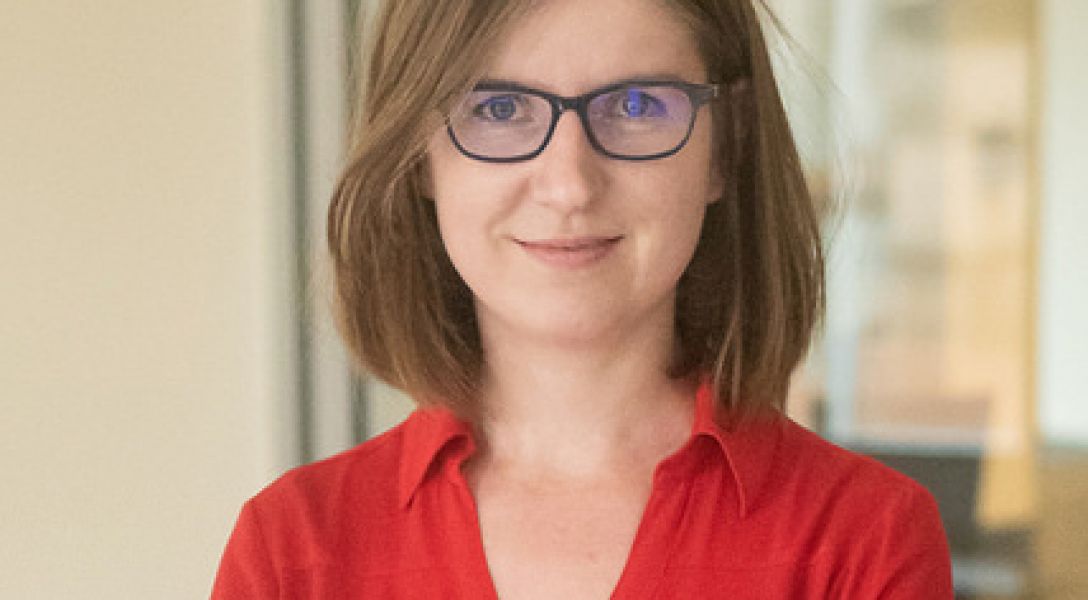The last time we checked in with Irina Gaynanova, she was two years away from completing her PhD in statistics here at Cornell. One of her greatest moments in graduate school, she told us in 2013, was serving as a teaching assistant in Statistical Methods I and II for several years.
"It is always great to hear students from my lab comment later that they enjoyed the class and that statistics is finally making sense for them," she said. "To me, this is the greatest reward for my teaching."
Since then, she graduated and is now an assistant professor in the department of statistics at Texas A&M University. We caught up with Dr. Gaynanova recently to discuss her career, teaching, and what she tells students interested in pursuing careers in data science.
You attended Cornell for your MPS and PhD. What made you initially pick Cornell for your master’s, and what made you stick around for your PhD?
I wanted to pursue PhD in Statistics, and I picked Cornell due to the good reputation of its statistics department. I have a friend who was in the program at the time and spoke highly of it. I also have another friend who attended a different PhD program at Cornell, and they both described Cornell and Ithaca with praise. For me, attaining a [Master's of Professional Studies in Applied Statistics] was always just a step in the process of getting my PhD.
Did you always know you wanted to teach, or was that a path you discovered during your studies?
My current position as a tenure-track professor at Texas A&M University consists of research, teaching and service. While more than 50 percent of my time is spent on research, I really enjoy teaching, and indeed I discovered just how much I enjoyed teaching while pursuing my PhD at Cornell. I have been lucky to serve as one of the TAs for BTRY 6010, 6020 Statistical Methods I and II classes for a couple of years, which gave me the opportunity to be responsible for my own lab section. I have enjoyed interacting with students in the class and office hours, and found it extremely rewarding when I could successfully explain a difficult concept to them in clear terms.
"I think it’s very important to be passionate about what you do, and always have the internal desire to learn more. Whether you want to work in academia or the data-science industry, make sure that’s what you want to do and not just what looks 'sexy' to others."
What do you remember most about your time as a student in Ithaca?
I love Cornell campus and how beautiful it is, especially in early Fall. I think I remember the campus the best. I also loved going hiking into the parks that surrounded Ithaca, and seeing beautiful waterfalls everywhere. I remember the amazing opportunity to take any class on campus (although I never took the popular wine-tasting class), the Cornell movie theater run by students, and of course the social events at the Big Red Barn.
How did your Cornell education prepare you for teaching?
As a TA at Cornell, I have been given opportunities to lead my own Lab/recitation sections, host office hours, and sometimes even guest lecture. I have also received teaching evaluations for my recitations separate from the instructor/course evaluations. Those experiences in interacting with students and their feedback really helped me develop as a teacher.
What advice do you give to current statistics students about working in the data-science industry or academia?
I think it’s very important to be passionate about what you do, and always have the internal desire to learn more. Whether you want to work in academia or the data-science industry, make sure that’s what you want to do and not just what looks “sexy” to others. The amazing thing about being a statistician is that there are many different career paths one can take, and even when you pick a path, it is possible to move to another as multiple examples show.
Anything else you’d like to add about your education and/or your Cornell experience? Any mentors who made an impact in your career?
I am especially grateful to my advisors, Jim Booth and Marty Wells, who made a tremendous impact on me forming my identity as a scientist and igniting my curiosity.



